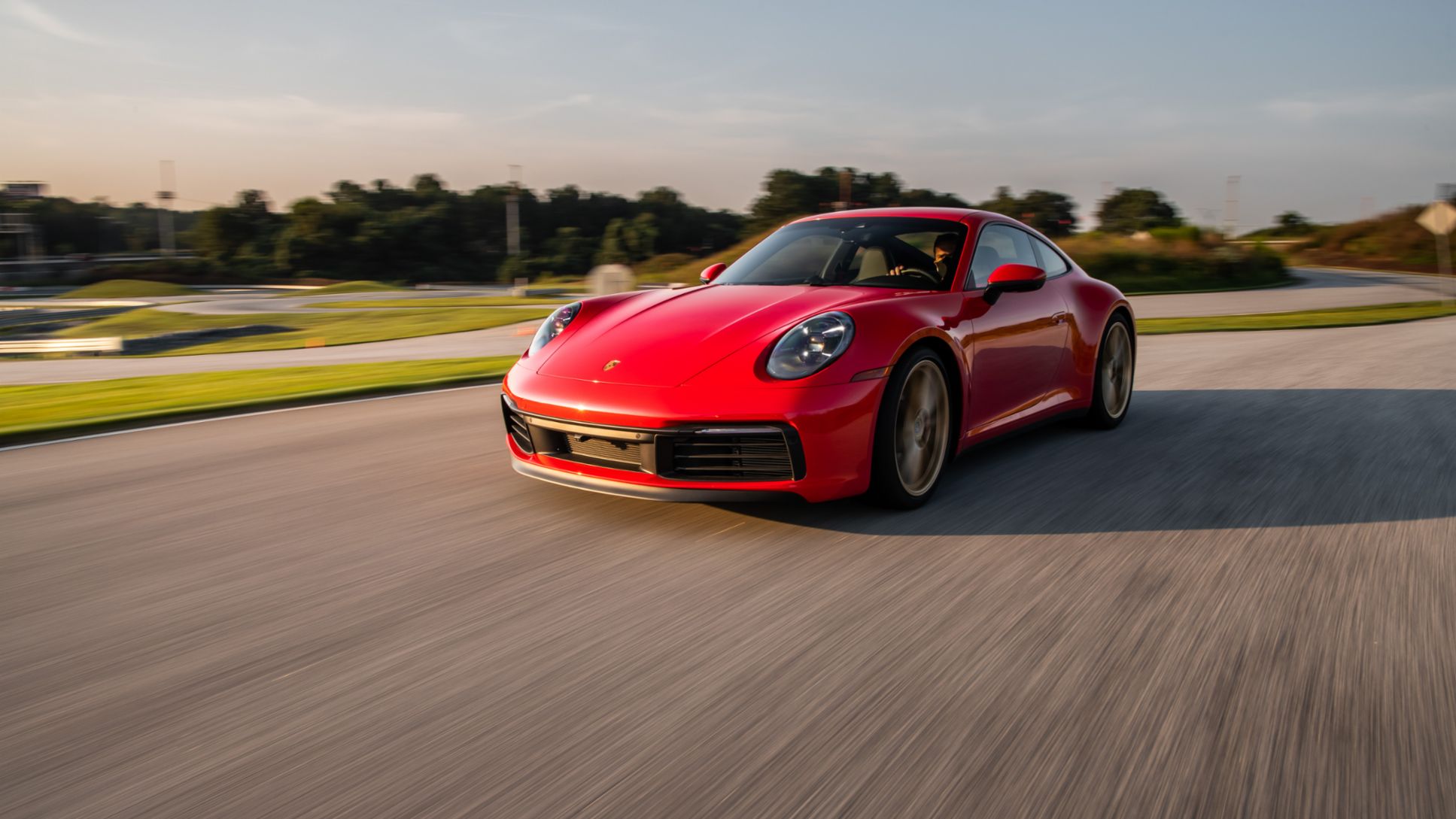When it comes to luxury sports cars, Porsche is a name that often comes to mind. Known for their sleek designs, powerful engines, and impressive performance, Porsche vehicles have become a symbol of prestige and success. But what about their reliability?
Some may argue that luxury cars, including Porsches, are not known for their reliability. They may cite high maintenance costs, complex technology, and the potential for expensive repairs as reasons to doubt the reliability of these vehicles. However, Porsche has been making significant efforts to improve the reliability of their cars.
In recent years, Porsche has been consistently ranked among the top brands for reliability. Their models have been praised for their durability and longevity, and many owners report minimal issues with their vehicles. Porsche has also made strides in improving the quality of their components and manufacturing processes, resulting in more reliable cars.
That being said, it’s important to note that Porsche vehicles are still high-performance machines that require proper care and maintenance. Regular servicing and inspections are crucial to keeping a Porsche in optimal condition and preventing potential issues down the line. Overall, while Porsche may not be the most reliable brand on the market, they have made significant improvements in recent years and continue to be a popular choice for those seeking a luxurious and high-performance driving experience.
Exploring the Reputation of Porsche Vehicles

Porsche vehicles have long been recognized for their reputation of excellence in the automotive industry. With a rich history dating back to 1931, the German automaker has built a strong reputation for producing high-performance sports cars and luxury vehicles.
One of the key factors contributing to Porsche’s reputation is the exceptional engineering and craftsmanship that goes into each vehicle. Porsche vehicles are known for their precision and attention to detail, from the design of the exterior to the interior finishes. This level of quality has helped Porsche establish itself as a leader in the luxury car market.
Another aspect that has contributed to Porsche’s reputation is their commitment to performance. Porsche vehicles are designed to deliver exhilarating driving experiences, with powerful engines and agile handling. Whether on the race track or the open road, Porsche cars are known for their performance capabilities.
In terms of reliability, Porsche vehicles have generally been well-regarded. While no car brand is immune to occasional issues, Porsche has worked diligently to address any reliability concerns and improve the overall quality of their vehicles. Additionally, Porsche offers comprehensive warranty coverage and a network of authorized service centers to ensure that owners have peace of mind.
Overall, the reputation of Porsche vehicles is built on a foundation of exceptional engineering, performance, and quality. With a commitment to innovation and a dedication to customer satisfaction, Porsche continues to be a highly regarded brand in the automotive industry.
Factors Affecting Porsche Reliability
When it comes to the reliability of Porsche vehicles, there are several factors that can affect their overall dependability. These factors can range from the model and year of the vehicle to its maintenance and driving habits. Understanding these factors can help potential buyers make informed decisions about their purchase.
1. Model and Year: The reliability of a Porsche can vary depending on the specific model and year of the vehicle. Older models may have more mechanical issues and require more frequent repairs, while newer models may benefit from improved technology and engineering.
2. Maintenance: Regular maintenance is crucial for the reliability of any vehicle, and Porsches are no exception. Following the manufacturer’s recommended maintenance schedule and ensuring that the vehicle is serviced by qualified technicians can help prevent major issues and prolong the lifespan of the car.
3. Driving Habits: The way a Porsche is driven can also impact its reliability. Aggressive driving, such as excessive speeding and sudden braking, can put additional strain on the vehicle’s components and increase the likelihood of mechanical problems. Gentle acceleration, smooth braking, and adhering to speed limits can help maintain the reliability of the car.
4. Quality of Parts: Using high-quality parts and components during repairs and maintenance can also contribute to the reliability of a Porsche. Genuine OEM (Original Equipment Manufacturer) parts are designed to meet the specific requirements of the vehicle and can help ensure optimal performance and reliability.
5. Environmental Conditions: The environment in which a Porsche is driven and stored can also impact its reliability. Extreme temperatures, harsh weather conditions, and exposure to road salt and other corrosive substances can accelerate wear and tear and increase the likelihood of mechanical issues. Proper storage and protection can help mitigate these risks.
6. Previous Ownership and Vehicle History: The way a Porsche has been cared for by its previous owners can also affect its reliability. A well-maintained vehicle with a documented service history is generally more reliable than one with a questionable history or a lack of maintenance records. Conducting a thorough inspection and obtaining a vehicle history report can provide valuable insights into the reliability of the car.
Overall, while Porsche vehicles are often known for their high performance and quality engineering, several factors can affect their reliability. By considering these factors and taking the necessary steps to maintain and care for the vehicle, owners can help ensure a reliable and enjoyable driving experience.
Engineering and Design
Porsche vehicles are renowned for their exceptional engineering and design. The brand’s commitment to innovation and performance is evident in every aspect of their vehicles, from the engine to the aerodynamics. Each Porsche model is meticulously engineered to deliver an unparalleled driving experience.
One of the key aspects of Porsche’s engineering is their focus on lightweight construction. By utilizing materials such as aluminum and carbon fiber, Porsche is able to reduce weight without compromising on strength. This not only improves performance, but also enhances fuel efficiency and handling.
Porsche’s design philosophy is centered around creating timeless and iconic vehicles. The brand’s sleek and aerodynamic exteriors are not only visually appealing, but also contribute to improved performance. Every curve and line is carefully crafted to optimize airflow and reduce drag, resulting in enhanced speed and stability.
Inside the cabin, Porsche vehicles are designed with both style and functionality in mind. The interiors are meticulously crafted with high-quality materials and attention to detail. From the ergonomic seating to the intuitive controls, every aspect of the interior is designed to provide comfort and enhance the driving experience.
In addition to their engineering and design prowess, Porsche also places a strong emphasis on safety. The brand incorporates advanced safety features and technologies into their vehicles to ensure the well-being of the driver and passengers. From stability control systems to advanced driver assistance systems, Porsche vehicles are equipped with the latest safety innovations.
Overall, Porsche’s engineering and design are the epitome of excellence. The brand’s commitment to innovation, performance, and safety sets them apart in the automotive industry. Whether it’s the iconic 911 or the versatile Cayenne, Porsche vehicles are a testament to the brand’s dedication to creating vehicles that are both thrilling to drive and a joy to behold.
Quality of Materials and Manufacturing
The quality of materials used in Porsche vehicles is widely regarded as top-notch. Porsche is known for using high-quality materials in the production of their vehicles, from the body panels to the interior finishes. The use of lightweight and durable materials, such as aluminum and carbon fiber, contributes to the overall performance and longevity of the vehicles.
Porsche also places a strong emphasis on the manufacturing process to ensure the highest level of quality. The company has strict quality control measures in place to monitor every step of the production process. Each vehicle undergoes thorough testing and inspection to ensure that it meets Porsche’s standards before it is released to the market.
The attention to detail in the manufacturing process is evident in the fit and finish of Porsche vehicles. The panels are aligned perfectly, and there are no visible gaps or inconsistencies. The interior components are well-crafted and built to last, providing a luxurious and comfortable driving experience.
In addition to the quality of materials and manufacturing, Porsche also offers a comprehensive warranty program to provide peace of mind to owners. This warranty covers various components of the vehicle and can be extended for an additional fee.
Overall, the quality of materials and manufacturing in Porsche vehicles is highly regarded, contributing to their reputation for reliability and longevity. With meticulous attention to detail and a commitment to using the best materials, Porsche produces vehicles that are built to last and provide an exceptional driving experience.
Maintenance and Care
Proper maintenance and care are essential for ensuring the reliability and longevity of Porsche vehicles. Regular servicing and inspections by trained technicians are recommended to keep the car in optimal condition. This includes routine tasks such as oil changes, filter replacements, and tire rotations. Following the manufacturer’s recommended maintenance schedule is crucial.
In addition to regular servicing, owners should also pay attention to daily care and maintenance. This includes keeping the car clean, both inside and out, to prevent dirt and debris from accumulating and potentially causing damage. Using the appropriate cleaning products and techniques will help preserve the vehicle’s appearance.
Another important aspect of maintenance is checking and maintaining the fluid levels in the car. This includes engine oil, coolant, brake fluid, and transmission fluid. Regularly checking these levels and topping them up as needed will help prevent potential issues and ensure the car continues to perform at its best. It’s also important to check for any signs of leaks or unusual noises and address them promptly.
Proper care of the car’s tires is also crucial for its reliability and safety. Regularly checking tire pressure and ensuring they are inflated to the recommended levels will help improve fuel efficiency and prolong tire life. Additionally, rotating the tires as recommended by the manufacturer will help ensure even wear and extend their lifespan.
Lastly, it’s important to drive the Porsche responsibly and within its limits. Aggressive driving and excessive speeding can put unnecessary stress on the vehicle and increase the risk of mechanical failures. Following traffic laws and avoiding harsh acceleration and braking will help maintain the reliability of the car.
In summary, meticulous maintenance and care are essential for maintaining the reliability of Porsche vehicles. Following the manufacturer’s recommended maintenance schedule, keeping the car clean, checking and maintaining fluid levels, and driving responsibly are all important factors in ensuring the longevity and performance of the vehicle.









